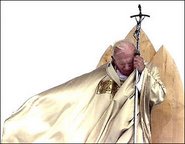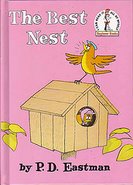Stage one: Strong Interest
"This phase, where you like perfume enough to own a few bottles and follow new releases, can last for years. You probably smell whatever comes through the department stores and have tried a few of the classics like Patou Joy and Chanel No. 5. You sniff perfume from bottles on other people’s dressers and compliment coworkers on how they smell. You probably like perfume more than most people you know, and you hope one day to find your signature scent.
Stage two: Beginning Perfume Mania
Somewhere, a switch flips, and your drive to know more about perfume ramps up. You might have traveled to France and had an olfactory awakening, or maybe you stumbled on Now Smell This as you were trying to find a good price on a bottle of Lanvin Arpège for your mother-in-law and now your interest in perfume deepens. You’ll never call a scent “perfume-y” or “old lady-ish” again — at least not in a derogatory way.
Now you start to explore Caron and Guerlain, or maybe you focus on L’Artisan Parfumeur or Annick Goutal instead. You try Mitsouko for the first time, and chances are you don’t like it much. You’re still making your mind up about the murky Mousse de Saxe in many of the Carons. You hear there’s a line called Serge Lutens that doesn’t export some of its perfumes. You learn how to pronounce “chypre”.
You might start to try to define yourself in scent, but it’s more an intellectual exercise, more aspirational than based on how a perfume really smells on you. For instance, you tell yourself, “Vetiver is sophisticated and earthy, and that’s how I want to be, so I love vetiver,” when in fact picking out the vetiver in all but the most vet-laden scents is hit or miss with you at this point. You just know you can find that signature scent, and it will surely contain lots of vetiver (substitute leather, tuberose, oakmoss, etc. as needed).
Stage Three: Full-blown Perfume Mania
Now you can list off the top of your head the Serge Lutens scents that weren’t created by Christopher Sheldrake. You’ve read Luca Turin’s old blog, and you swap samples to feed your perfume lust. You’ve given up on finding a signature scent.
For your bank account, this is a dangerous stage. You may start ordering decants or even bottles that you’ve never smelled. Within a few years you have a stockpile of bottles that seemed so inexpensive one by one (“Yves Saint Laurent Rive Gauche? It’s a classic! I have to order it. Wait, is that Balmain Vent Vert for only $19?”) but together add up to a mortgage payment.
On the other hand, you are now able to smell five rose and patchouli scents and perceive how different the rose and patchouli are in each. You know what types of iris scents work for you, and you know if the scent of saddle leather or glove leather pleases you more. You may even surprise yourself by appreciating powdery, rosy, or aldehydic scents you used to avoid.
Stage Four: Connoisseurship
Now you start to pare your collection down to perfume that really speaks to you. You swap away that bottle of Maître Parfumeur et Gantier Route du Vétiver that you bought because it was tough and beautiful because you know now that a strong dose of vetiver isn’t great on you. You know that admiring something and living with it aren’t the same.
You like smelling new perfumes but aren’t frantic to get a sample of the latest Parfumerie Générale scent as soon as it comes out. It will be there when you’re ready. You enjoy reading the opinions of perfume critics, but ultimately you trust your own judgment.
You don’t have a signature scent, just like you don’t wear the same dress every day. But just like clothes, you have a wardrobe of scents that speaks to who you are and that you feel good wearing.
Best of all, scent — not just perfume — has become a source of deep pleasure. The smell of the wind, a glass of wine, or a wet garden feeds you. You smell the seasons change and the day age. Isn’t it great?"
post credit: Becoming a Perfumista





No comments:
Post a Comment